A 15-month long multilingual journey
Pathfinder: Wrath of the Righteous released in September 2021. We toiled for months to help this project reach audiences worldwide: we found and assembled teams, completed the Spanish and Chinese translations, engaged with the fan community, and worked miracles to find new localization heroes on a very tight deadline.
Simply put, translating this adventure game turned out to be its own adventure!
Pathfinder: Wrath of the Righteous is a roleplaying game by Owlcat Games who have previously brought you Pathfinder: Kingmaker). Owlcat’s new story revolves around a war against demons that infiltrate the human world through the portal to the Abyss.
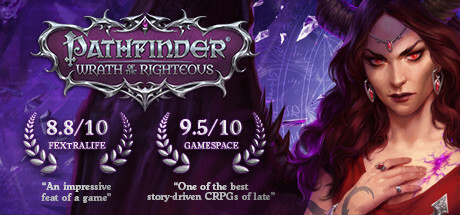
Expansive roleplaying games of this caliber have two distinct features: lots of lyrical texts and heaps of technical text. Lyrical texts within a game describe quests and events. They chronicle game events and dialogue between characters. Technical texts include skill descriptions, interface elements, and action logs.
While the former texts require excellent literary language skill and extensive knowledge of the genre and game world, the latter require different skills: an understanding of game mechanics, proficiency with in-text variables, and intimate familiarity with the limitations various technicalities may impose on translation.
In the case of Wrath of the Righteous, the translation was strongly influenced by the established lore of the game, such as the information found in Paizo’s multiple already translated publications, and the tabletop traditions of Pathfinder.
To find people who were up to the task, Owlcat Games decided to hold trials for would-be contractors.
Contractor trials
To choose the right translators, we sent prospective candidates snippets of the in-game texts from the publisher. We usually narrow our choices down to two or three teams, where each translator works with an editor. That way, our client can take their pick and choose between localization teams. Some can follow the source text extremely closely, while others specialize in wordplay and can work meme references into the material. Every team has their unique strengths.
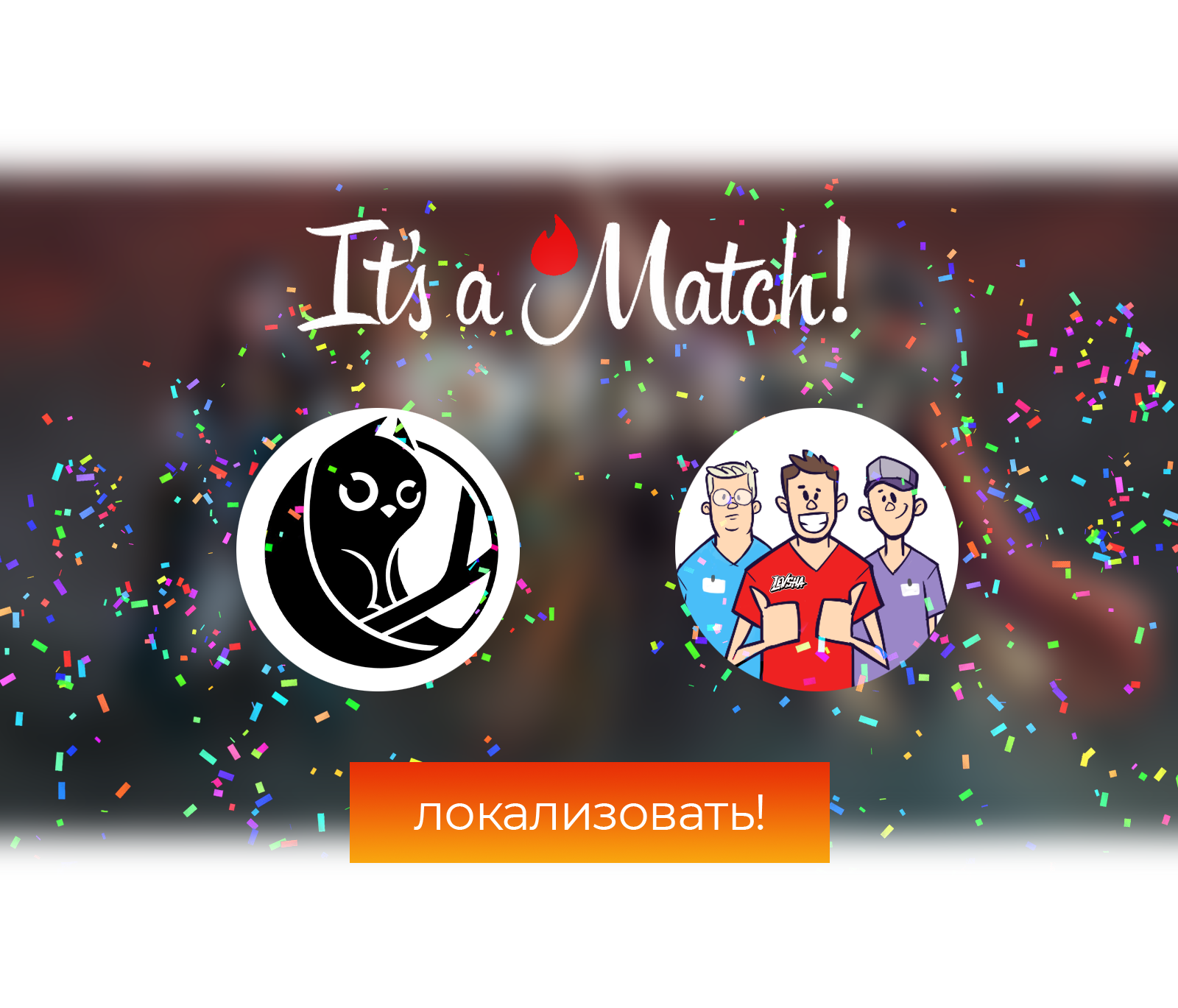
The selection process also acts as a guarantee: contracted talent can rest assured that they won’t be wanting for work any time soon, and our client can rest easy knowing their localization teams are made up of vetted professionals who won’t vanish mid-project.
“Hold on,” — we hear you ask — “what about the candidates that don’t make the cut? Do these people never get a chance to work on anything else?”
Of course they do! As mentioned above, everyone has their unique strengths, and we may need those candidates’ strengths for a different project. For example, if a candidate can pick up on very complex allusions to The Silmarillion, such an ability will definitely win over a developer who has been carefully scattering them throughout their game.
Jumping headfirst into our work
We had put together a few teams of translators. They were all native speakers of their target language. The client had taken on our Spanish and Chinese teams.
The Spanish team from the Gameloc studio started on the project on June 1st, 2020. For 15 months (right up to the game release), they localized every last word of the lyrical texts in the game — around 1,760,000 words in total. That’s almost ten times the length of Leo Tolstoy’s War and Peace.
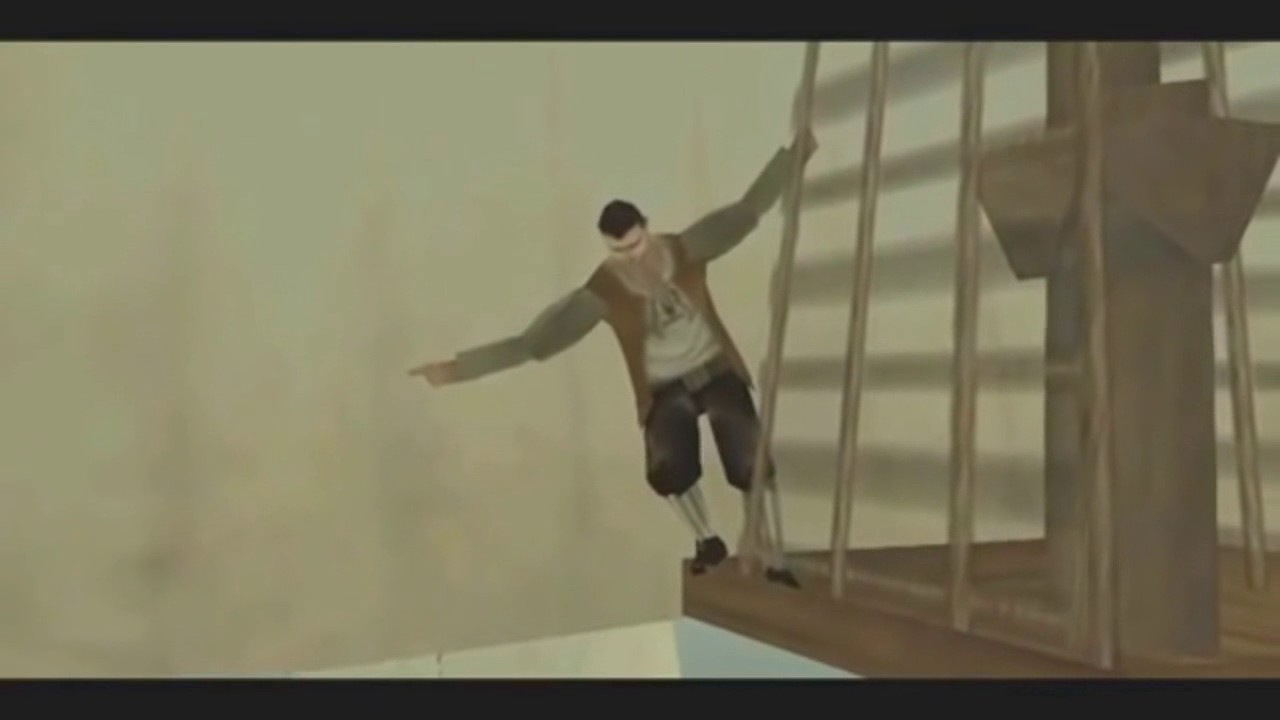
“SPANIARDS!” Old game trivia check — do you remember which game this is from?
Let’s break this number down to make it easier to understand. To translate such a huge amount of text, 5,000 words must be translated in a single work day. That’s enough to keep two translators occupied, but not overworked. Our contractors worked on this project at this pace for over a year. Even though certain projects take a long time, it’s not often that you spend an entire year working on one project exclusively.
“I'd have to say we have received the most support I have ever seen in a project. Timely responses to Q&A; questions, reasonable deadlines (some even generous) and all the reference materials one could ever ask for and more.”
GameLoc, Spanish localization team
Spending 15 months completely immersed in a game’s material has an effect on translators, transforming them into some of the best Pathfinder experts around.
“The greatest advantage we had (in addition to most of the people involved being great fans of the genre and the aforementioned support) was that thanks to the relatively slow start, we had enough time to familiarize ourselves with the game and by the time the files really started coming in en masse we already had people familiar with most of the places, events and characters that came up.”
GameLoc, Spanish localization team
In December 2020, our Chinese team got to work on the project. They started a little later because initially, the developers employed translators from their fan community to lead localization efforts, as these were the same people Owlcat had already worked with on Pathfinder: Kingmaker. However, it quickly became apparent that a fan team wouldn’t be able to process the sheer volume of text in Wrath of the Righteous, so we jumped in.
“We realized that when the bulk of the text came in, our two-person team wouldn’t be able to complete the translation in time.”
Irina Lebedevich, Localization Manager at Owlcat Games
Everything went swimmingly. But how did we manage it? We brought in professional localizers with considerable experience who know just about everything there is to know about their job, from crafting button text to adapting complex texts for new audiences with minimal omissions of meaning, intent, and humor. Then we put these professionals in contact with the most devoted fans of the series, the people who were most knowledgeable about the lore and the tabletop roleplay side of Pathfinder. These fans wanted to bring the joy of this new project to other players, and even knew a thing or two about localization themselves. And so it all came together like peanut butter and jelly! Although we must mention here that it doesn’t always work out this way. We just thank our lucky stars that this time, it did!
To top things off, we connected our fan team with our pro team on Discord and let them work out some contentious points together on a dedicated server. This level of communication is actually quite rare.
“When we translated the monk’s skills, talents and Tianzhou-related terms, we adopted a transcreation method and came up with skill names that contain much more content than the original names and sound more “Oriental” while keeping their lengths under 5 Chinese characters. I think the results were quite successful, as most Chinese players were positive about the “new skill names”.”
Jiannan "Mario" Shang, Translator (Chinese)
Transcreation is a cultural adaptation technique applied to a translation that aims to convey the style, tone, and cultural context in addition to the original meaning.
Transcreation is a cultural adaptation technique applied to a translation that aims to convey the style, tone, and cultural context in addition to the original meaning.
In their Chinese translation, Owlcat Games managed to strike a delicate balance between fan translation and professional localization, sidestepping the all-too-familiar outcry of unhappy fans of a series. We were happy to lend our smithing hammer a hand.
“I would say the overall experience was very pleasant, because most of my peers, including Apollo and translators from other localization teams, have done an excellent job. In addition, the story of Pathfinder: Wrath of the Righteous is INCREDIBLY FASCINATING. I was often absorbed in the story when I did the translation work and couldn’t wait to see what would be coming next (and waiting eagerly for further batches). So, thank you for your great story, Owlcat Games!”
Jiannan "Mario" Shang, Translator (Chinese)
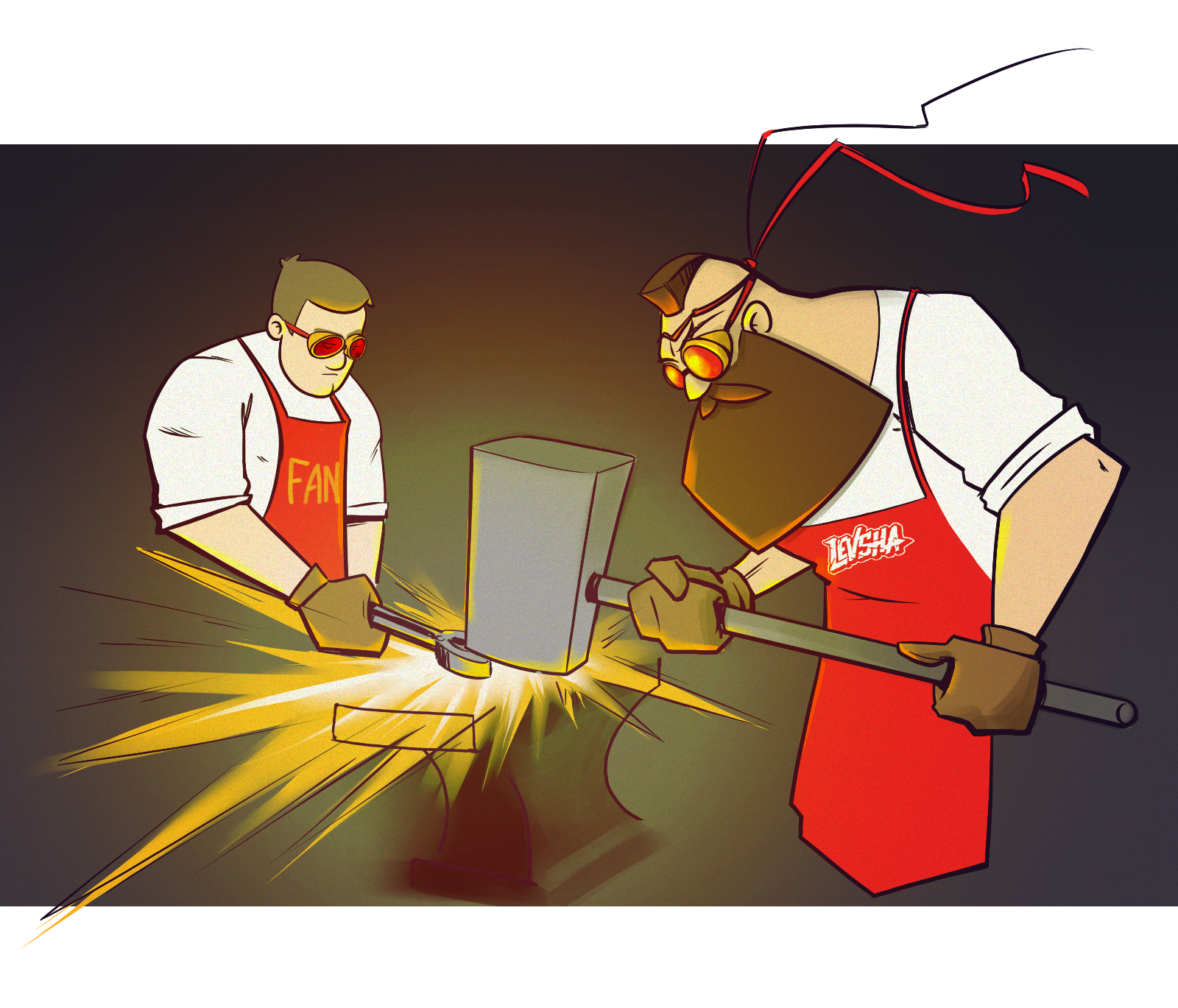
Let’s not forget that Owlcat Games made an executive decision to separate the technical texts from the lyrical ones and give the former to an entirely different team of contractors, so that the complete translation of their product could be ready in time. This could have lead to some inconsistencies and a whole host of different problems, but the final cross-reading of the text by a dedicated team of select specialists nipped those concerns in the bud.
We are delighted to note that after such a thorough inspection, we barely had to make any more edits to the final product.
“Edits to the Chinese and Spanish translations were relatively few and far between, so I would say that the overall quality was outstanding.”
Irina Lebedevich, Localization Manager at Owlcat Games
Some technical issues
From a managerial standpoint (though not a linguistic one!), localization into several languages does not meaningfully differ from localization into just one. The main difference is the total workload, which is far greater for a multilingual project as it requires a lot more attention and work hours.
For Wrath of the Righteous, the workload was increased even further by the colossal volume of the project. It’s no secret that on a long enough timeline, any large project will run into problems, which is why it is important for an MLV studio to sort these problems out and take the pressure off the client. Incorrectly uploaded files, unsent emails, lost references — seemingly small issues can cause big mistakes to manifest. And if you don’t catch these mistakes, oof... you don’t want to know, trust us.
This was not our first rodeo when it came to all these multilingual shenanigans, so we came prepared, and knew we’d have to set things up, fine tune, monitor, and double check.
“The best part about this partnership was just how refined the business processes [at Levsha] were. As long as I emailed the materials, I knew the rest would be taken care of. I would always receive detailed statistics and estimates, complete with ETAs. All special instructions (if any) would be followed to the letter, and if any mishaps did occur, then I could trust Fyodor to clear everything up or refresh my memory.”
Irina Lebedevich, Localization Manager at Owlcat Games
When working with huge volumes of text like Wrath of the Righteous, it’s also important to have a line of communication with the creative minds behind the game. Sometimes a clarification is sorely needed to figure out the minutia of lore or some storyline twist. That’s where the Q&A; form came into play: any questions the teams had were promptly answered using this tool.
We have processed and localized over 5,000 files for Spanish and Chinese localizations combined. To prevent mix-ups and losses, Fyodor, our Project Manager, always uploaded and downloaded files with their internal structure preserved. The entire catalogue of files received from the client was delivered in the same arrangement and within the same folder structure — we sent them back sorted exactly as we got them.
Vendor management magic
Time is an important resource to manage in localization.
The closer the release date, the more pressure there is to step on it and accelerate the localization in all languages. The good folks at Owlcat Games realized that they could not work through the entire game with the team they had without letting quality slip, so they turned to us to help them find more localization power. We helped them find more people to work on the German, French and English localizations and finish up the text that was left behind.
Earlier in the article, we alluded to certain unique skills we had to take into account as we worked on Wrath of the Righteous. As such, we had to start a new round of trials to put together support teams.
Finding a team that could fulfill our fairly specific requirements on a tight deadline was not easy, but we worked a genuine miracle. Our trial campaign netted us a new crop of contractors that Owlcat Games approved for work on Wrath of the Righteous.
Why was this a miracle, you may ask? Because we didn’t just take some of our own teams that hadn’t been trialed yet (some were unavailable, and others were ineligible because they’d already tried out). Instead, we found an entirely new batch of contractors and tested them. We verified their skills in areas important for this specific project, and realized that we’d struck gold! So we sent that gold over to our client, who approved our candidates and put them to work on the project right away.
Sure, we still had to figure some things out in order to meet our deadline. We were dragging behind a bit with the editing, but we made it work — after all, we had a clear line of communication with Owlcat Games by way of their Localization Manager, so we were able to discuss what we had to do and solve problems when we needed to.
“I felt like I could rely on Levsha as a partner and rest assured that even if something slipped my mind, there were eyes on the project that would notice problems and make sure everything was right.”
Irina Lebedevich, Localization Manager at Owlcat Games
Where the path of adventure took us
To summarize, let’s look back on the scope and timelines for this project:
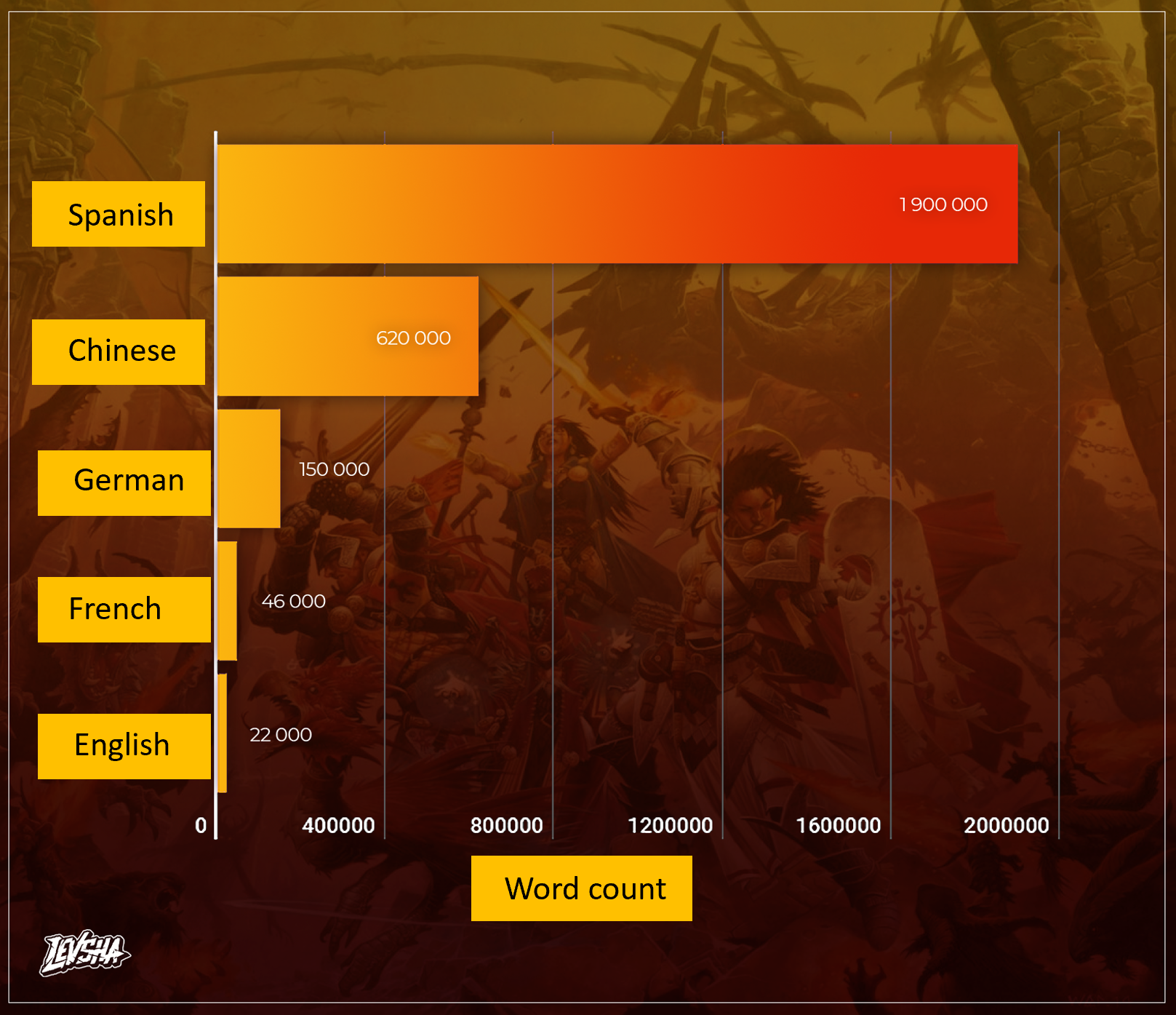
With literal hundreds of thousands of words to process, there was so much that *could* go wrong. And some things did: some tags were messed up, but we quickly fixed that.
This project tested our endurance and adaptability to our client’s needs. For us, this long-term multilingual project with fan involvement wasn’t anything new, but it was an exciting and positive experience.
It was truly righteous.